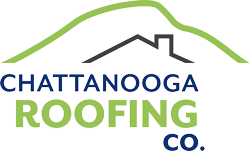
email us
ted@chattanoogaroofingco.com

call us now
(423) 308-ROOF
commercial roofing
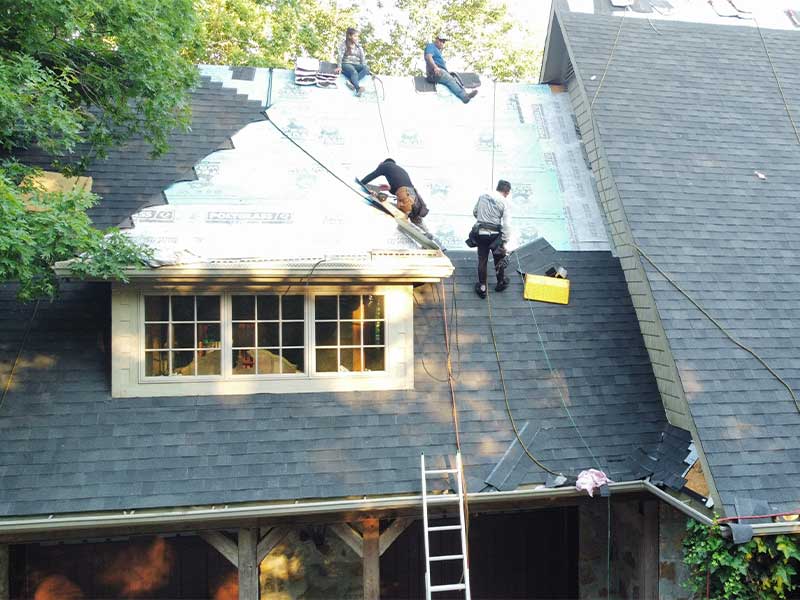
21 Sep. 2024
Longevity and Durability: Choosing a Roof Installation That Will Last
Longevity and Durability: Choosing a Roof Installation That Will Last
As a homeowner, investing in a roof installation is one of the most significant decisions you’ll have to make for your property. With so many options available, it can be overwhelming to find the right roofing solution that not only looks aesthetically pleasing but also stands the test of time. After all, no one wants to deal with the hassle and cost of constantly repairing or replacing their roof. This is why choosing a durable and long-lasting roof should be a top priority when considering any exterior renovations. In this blog post, we’ll delve into the key factors you need to consider when selecting a roof installation that will provide longevity and durability for your home. So if you’re in the market for a new roof or simply curious about what makes certain roofs more durable than others, keep reading!
Roofing material durability
As one of the most critical components of a building structure, the roofing material plays a crucial role in protecting the property from external factors such as weather damage, physical impact, and insulating the interior. Choosing the right type of roofing material is, therefore, a critical decision that requires a thorough evaluation of factors, such as lifespan and weather resistance, among others. When considering the durability of roofing material, it is essential to look at the specific climatic conditions of the region in which the building is located. For instance, Asphalt shingles, while relatively affordable, may be susceptible to damage due to high winds, heavy rain, and extreme weather conditions. In contrast, Metal roofing offers outstanding durability, with a lifespan of up to 50 years and exceptional weather resistance, making it an ideal choice for regions that experience extreme weather conditions. Additionally, Tile roofing is a popular choice for its elegance and longevity, boasting a lifespan of up to 100 years and excellent resistance to fire, wind, and hail. Irrespective of the roofing material choice, regular maintenance and inspection are crucial in ensuring the integrity and longevity of the roof. By carefully evaluating the specific roofing material’s lifespan and weather resistance, property owners can make an informed decision and ensure that their investment is well protected.
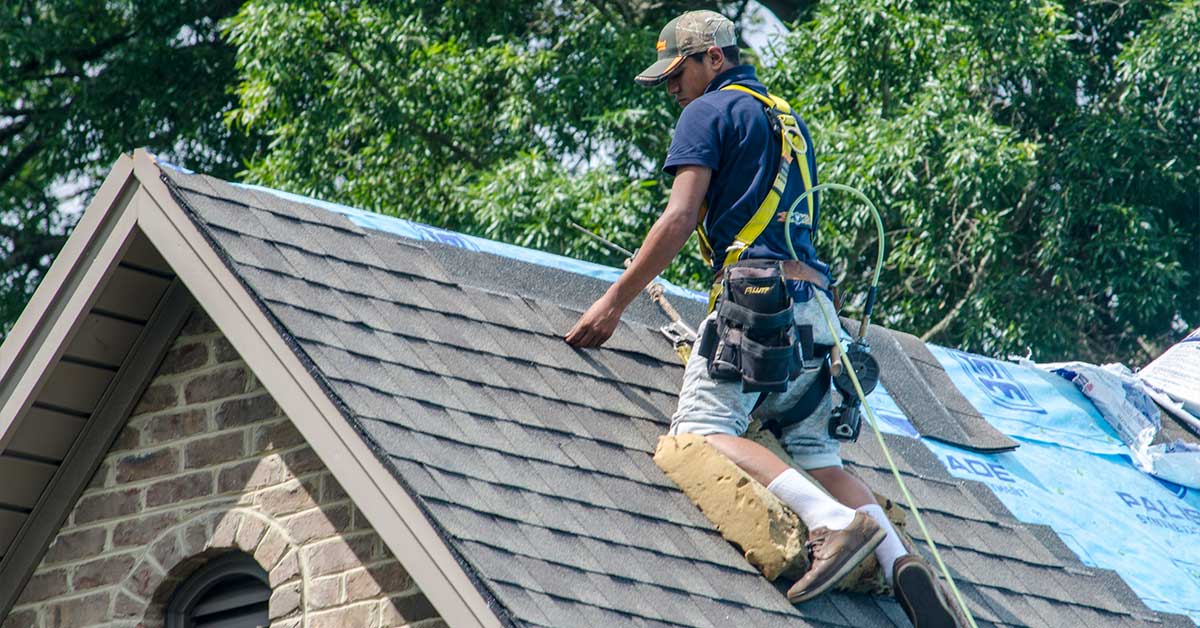
Roof Installation
Roof pitch and ventilation
Roof pitch and ventilation play vital roles in the overall health and longevity of any roofing system. Ensuring the proper slope and airflow are imperative to prevent the damaging effects of moisture from infiltrating your home. This occurs because stagnant air and moisture can accumulate in an improperly vented and sloped roof structure, leading to harmful mold and mildew growth, and ultimately compromising the structural integrity of your roof. Therefore, it is crucial to consider both the pitch and ventilation of your roof during the installation process, as well as any time you plan to do any major roofing work. Expert roofing contractors understand that improper ventilation and slope can lead to major roofing headaches in the long run, and will take care to inspect and correct any issue before it turns into a large-scale problem. So, whether you are installing a new roof or maintaining an existing one, be sure to give careful attention to the pitch and ventilation of your roofing system, to ensure its longevity and protect your home from dangerous moisture damage.
Underlayment and moisture barriers
Underlayment and moisture barriers are essential components of any roofing system. They provide an added layer of protection that enhances the durability and longevity of the structure. High-quality underlayment can effectively guard against moisture, wind, and even UV radiation, preventing damage to the roof and water from penetrating the home’s interior. Besides, moisture barriers provide an essential function in preventing moisture from undermining the roof’s integrity, leading to costly leaks and damage. Choosing the right underlayment and moisture barrier can help create a robust barrier against the elements, ensuring the roof stands the test of time while reducing energy consumption. It’s worth noting that the right choice and installation could ultimately save homeowners thousands of dollars by preventing costly repairs and keeping their home’s interiors safe. In summary, investing in proper underlayment and moisture barrier is a key decision that will pay off all the way.
Fastener selection
Fastener selection is a critical aspect of any construction project. Choosing the right type of nails is essential when it comes to ensuring the durability and longevity of the finished structure. Hot-dipped galvanized or stainless steel nails are the preferred option for many construction professionals due to their inherent resistance to rust and corrosion. These nails are specially treated to prevent rusting, making them ideal for use in harsh climates where moisture and humidity are common. Hot-dipped galvanized nails are the ideal choice for projects located in coastal areas or those exposed to saltwater spray, as they offer superior resistance to rust and corrosion. Stainless steel nails, on the other hand, are more suitable for projects located in dry, arid climates. Choosing the right type of nail for your construction project could mean the difference between a structure that lasts for decades and one that requires frequent repairs or replacement. By taking the time to select the appropriate nails, you can ensure that your project will stand the test of time and withstand the elements, no matter where it is located.
Skylight and vent flashing
Skylight and vent flashing play a critical role in protecting the roof against water damage. Flashing is essential in areas where the roofing material meets a vertical surface or protrusion, such as vent pipes, skylights, chimneys, and walls. Without proper flashing, water can easily penetrate these areas, causing leaks and moisture damage to the underlying structure. That is why it is essential to ensure that flashing is properly installed and sealed. Skylight and vent flashing are commonly made of rust-resistant metals like aluminum, copper, and stainless steel, which can withstand exposure to the elements and effectively channel moisture away from the roof’s surface. With the correct installation and sealant, these materials can provide long-lasting protection against leaks and water damage. Investing in quality skylight and vent flashing can not only save you money on repairs but also extend the life of your roof.

Roof Installation
Inspecting for wear
Inspecting for wear is a vital aspect of any maintenance program, and it must be done correctly. When it comes to checking for curling, cracking, or damage – particularly near the end of the material lifespan – attention to detail and focus is paramount. Deeper inspections can reveal subtle signs of wear that may not be immediately noticeable to the naked eye. The key to effective inspection is keeping abreast of the latest developments in inspection technology. With the right tools and techniques, maintenance personnel can detect the early signs of wear, identify potential causes, and take corrective action before major issues develop that can compromise performance or safety. Inspecting for wear is a challenging task, but it is also a vital one that should never be neglected. So, ensuring that everything is done correctly is of utmost importance.
In conclusion, choosing the right roofing material and ensuring proper installation can greatly impact the longevity and durability of your roof. Whether it be asphalt shingles, metal roofing, or tile roofing, each option has its benefits and drawbacks. However, by considering factors such as weather resistance and lifespan, you can make an informed decision that best suits your needs. Additionally, don’t underestimate the importance of proper roof pitch and ventilation to prevent moisture issues. And don’t forget about using high-quality underlayment and moisture barriers to protect against wind and water damage. Pay attention to fastener selection as well – using appropriate nails for your climate can make a world of difference in the longevity of your roof. Always make sure to properly seal flashing around skylights and vents to avoid potential leaks. Lastly, regularly inspecting your roof for wear and tear is crucial, especially as it nears the end of its lifespan. By following these tips and making necessary repairs or replacements when needed, you can ensure that your roof remains strong and dependable for years to come. Don’t wait until it’s too late – take action now for a safe and secure roof over your head.
Chattanooga Roofing Company
https://www.google.com/maps?cid=3134983317498625437
https://www.google.com/maps?cid=3134983317498625437
(423) 401-6407
- By: Collaborate
- commercial roofing, roofing contractor, roofing installation, best roofing installation, Roofing specialists, Roofing contractors near me, Roofing solutions, Affordable roofing, Quality roofing, Installing Roofs, New Roof Installation, Roofing Installers, roof replacement, Roof Construction, roofing company, Roofing Repairs, roofing services, Professional Roofing, residential roofing, Expert Roofing
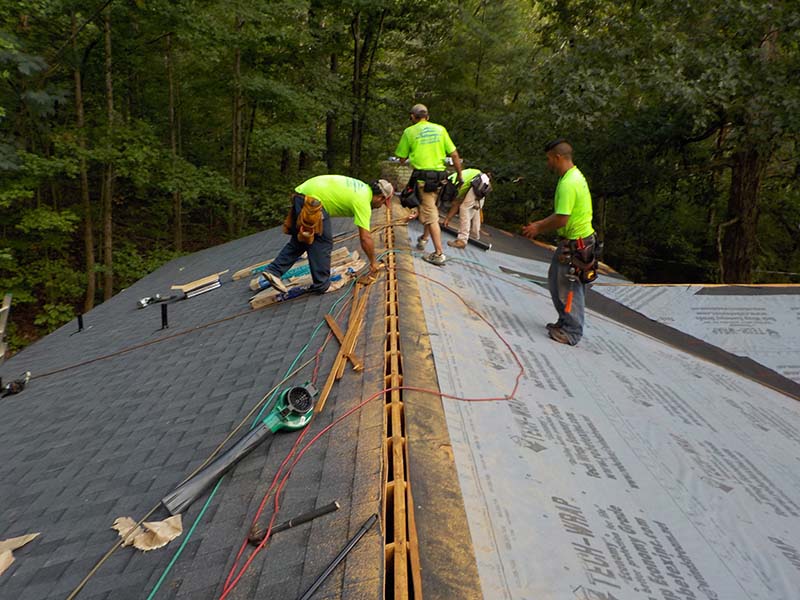
07 Sep. 2024
How to Choose the Right Roofing Company Near You: A Comprehensive Guide
How to Choose the Right Roofing Company Near You: A Comprehensive Guide
Finding the right roofing company is a critical decision that homeowners and business owners must make with care. The integrity of your roof affects not only the aesthetic appeal of your property but, more importantly, its safety and durability. This comprehensive guide is designed to help you navigate the process of selecting the best roofing company for your needs, ensuring long-term satisfaction and peace of mind.
The Importance of Choosing the Right Roofing Company
Choosing the right roofing company goes far beyond simply finding someone to replace or repair your roof; it involves entrusting the safety, durability, and overall integrity of your home to professionals who fully grasp the critical nature of their task. A high-quality roof is much more than an aesthetic feature; it serves as the first line of defense against the harshness of environmental elements, tirelessly protecting your property from the relentless assault of rain, wind, scorching heat, and other weather-related challenges that can arise unexpectedly.
Opting for a reputable and experienced roofing company can lead to long-lasting roofing solutions that not only enhance the visual appeal of your home but also significantly reduce the likelihood of future damages, thereby sparing you from the stress and financial burden of unnecessary repair costs. Moreover, the right roofing contractor will ensure that the materials used in the construction of your roof are of the highest quality, sourced from reputable suppliers, and that the installation process strictly adheres to the latest industry standards and best practices, further enhancing both the value and lifespan of your roof.
The installation of a roof is a meticulous process that requires precision, expertise, and a deep understanding of both the materials involved and the environmental conditions the roof will need to withstand. This makes the choice of a roofing company a critical decision—one that can significantly impact not only the immediate outcome of the roofing project but also the long-term safety, aesthetics, and investment value of your property.
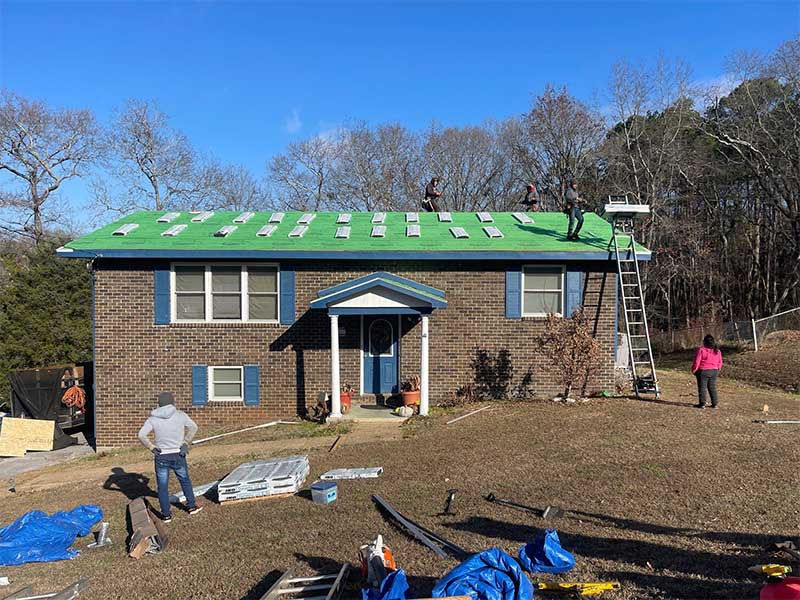
Roofing Company
Understanding Your Roofing Needs: Residential vs. Commercial
Before choosing a roofing company, it’s essential to understand the key differences between residential and commercial roofing systems, as each has unique requirements and challenges. Residential roofing typically involves steep slope applications with options like asphalt shingles, tile, or metal roofing materials. These materials are chosen for their aesthetic appeal, durability, and ability to protect homes from the elements. Residential roofs tend to be more straightforward in design, focusing on architectural style and personal preference.
On the other hand, commercial roofing systems are often flat or have a low slope and require materials that can cover larger surface areas effectively. These systems might utilize built-up roofing (BUR), single-ply membranes (such as TPO, PVC, or EPDM), or modified bitumen. Commercial roofs must withstand a different set of environmental stresses, including heavy equipment, foot traffic, and potentially harmful chemical exposures. They also need to consider factors such as drainage, insulation, and compliance with local building codes, which are far more stringent.
Recognizing whether your roofing project is residential or commercial is crucial, as it influences the choice of materials, design considerations, installation processes, and, ultimately, which roofing company is best equipped to meet those specific needs. Roofing contractors often specialize in either residential or commercial projects, so identifying your requirements early on will help narrow down your options to those most capable of providing the expertise and service your project demands.
Qualities to Look for in a Reliable Roofing Company
When searching for a reliable roofing company, several key qualities should guide your decision-making process. These characteristics ensure that you select a contractor who will not only do the job right but also provide value and assurance throughout the lifespan of your roof.
- Licensing and Insurance: A reputable roofing company should have all necessary licenses for operating in your area, ensuring they adhere to all local building codes and regulations. Insurance, including liability and worker’s compensation, is equally critical, as it protects you from any potential liabilities in case of accidents or damage to your property during the project.
- Experience and Reputation: Look for a company with a solid track record of quality workmanship and positive customer feedback. Experienced roofers are more likely to recognize and effectively address any challenges specific to your roofing project. Online reviews, testimonials, and references can provide valuable insights into the company’s reputation and the satisfaction of past clients.
- Detailed Quotes and Contracts: A reliable roofing company will offer a detailed quote that outlines the scope of work, materials to be used, timelines, costs, and payment terms. This level of transparency helps prevent any unexpected expenses or disputes. A formal contract should also be presented before any work begins, ensuring both parties are clear on the expectations and obligations.
- Communication and Professionalism: Excellent communication is crucial for any successful roofing project. A trustworthy company will keep you informed at every step, from the initial assessment to the completion of the project. Professionalism in their dealings, timeliness, and the way they handle queries or concerns reflects their commitment to customer satisfaction.
- Warranty and After-Sales Service: A quality roofing company stands behind their work with a warranty that covers both materials and labor. This shows confidence in their workmanship and provides you peace of mind knowing that any future issues will be addressed. After-sales service, including maintenance and repairs, is also a sign of a dependable company that prioritizes long-term relationships with their clients.
Finding a roofing company that embodies these qualities will help ensure that your roofing project is completed efficiently, effectively, and with the highest level of professionalism.
How to Research and Shortlist Potential Roofing Companies
Researching and shortlisting potential roofing companies involves a thorough process to ensure you find a reputable provider that meets your specific needs. Begin by conducting an online search to identify companies in your area, paying close attention to those with professional websites and positive customer reviews on platforms such as Google, Yelp, or industry-specific sites like Houzz or Angie’s List. It’s wise to check the Better Business Bureau (BBB) for any accreditation and to see if any complaints have been filed against the companies.
Networking with friends, family, or neighbors who have recently undergone roofing projects can provide firsthand insights and recommendations. Their experiences can help you gauge the reliability, professionalism, and quality of work offered by certain contractors.
Once you have a preliminary list of companies, examine their online presence for evidence of their work, such as project galleries, and look for any industry certifications that indicate a professional commitment to quality and ongoing education. Additionally, verify their licensing and insurance directly with them to ensure they are up to date.
Narrow down your list by assessing which companies specialize in the roofing services you need, whether residential or commercial, and consider their experience with the specific materials you’re interested in. Reach out to each for an initial consultation or quote, noting their responsiveness, willingness to answer questions, and overall approach to customer service.
This process will help refine your list to a select few roofing companies that not only meet your project’s requirements but also exhibit a strong potential for delivering satisfactory results.

Roofing Company
What to Expect from a Professional Roofing Company
When engaging with a professional roofing company, clients should anticipate a high level of service that encompasses several key aspects, beginning with an in-depth consultation and evaluation of their roofing needs. During this initial consultation, representatives should offer thorough insights into the best materials and approaches suited to the project’s unique requirements, considering factors such as climate, the building’s architecture, and budget constraints.
- Site Inspection and Project Planning: A detailed site inspection is an essential step, where the roofing experts assess the current condition of your roof, identifying any underlying issues that need addressing before work begins. This is followed by the development of a comprehensive project plan that outlines the scope of work, project timelines, and an estimated completion date.
- Clear Communication and Regular Updates: Throughout the project, a professional company will maintain open lines of communication. Clients can expect regular updates on the project’s progress, any changes to the plan, and quick responses to any questions or concerns they might have.
- Quality Workmanship and Safety Compliance: Skilled workers using high-quality materials will carry out the work. A professional roofing company is committed to safety, ensuring that all work complies with local building codes and safety regulations to protect both the workers and your property.
- Completion and Final Inspection: Upon project completion, a thorough inspection is conducted to ensure the work meets the clients’ expectations and industry standards. Clients are then provided with a complete rundown of the work performed, along with care instructions and warranty information for the materials and labor used.
- Aftercare and Support: Post-installation support is a hallmark of a professional roofing company. Clients should expect information on maintaining their new roof, along with offers of scheduled maintenance visits. Additionally, a reputable company will stand by their work, readily available to address any future concerns or warranty claims.
By setting these expectations, clients can feel confident in their choice of roofing company, assured that their investment is protected and their roofing needs are expertly met.
Conclusion
Finding a quality roofing company is crucial for the success and longevity of your roof. By researching and shortlisting potential companies, setting clear expectations, and thoroughly evaluating their credentials and services, you can ensure that your project is completed with professionalism, efficiency, and excellent results. Don’t settle for less when it comes to something as important as your roof; choose a trusted and reputable roofing company that prioritizes customer satisfaction and long-term relationships.
Chattanooga Roofing Company
https://www.google.com/maps?cid=3134983317498625437
https://www.google.com/maps?cid=3134983317498625437
(423) 401-6407
- By: Collaborate
- commercial roofing, roofing contractor, roof installation, Roofing specialists, Roofing contractors near me, Roofing professionals, Roofing experts, Roofing solutions, Roof repair service, Trusted roofing company, Roofing company reviews, Affordable roofing, Roof Maintenance, Quality roofing, roofing services, Emergency roofing services, local roofing company, Licensed roofing company, residential roofing, Experienced roofing team.
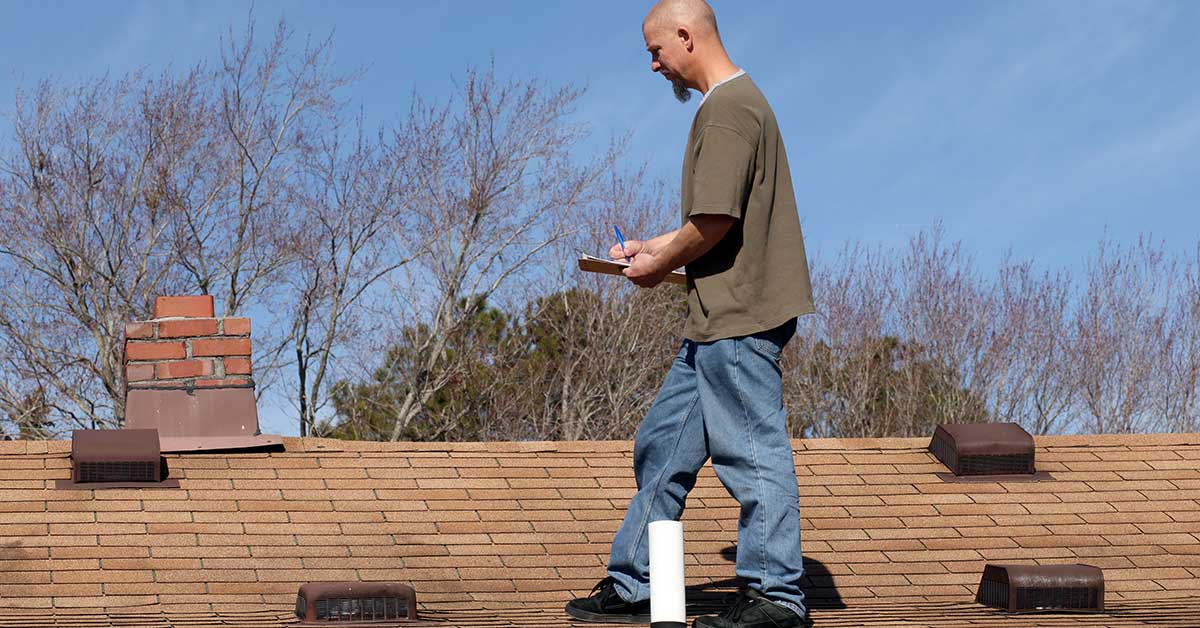
07 Mar. 2024
Benefits of Using Metal for Residential and Commercial Roofing Projects
Benefits of Using Metal for Residential and Commercial Roofing Projects
Are you planning a residential or commercial roofing project? Are you wondering which material is right for your needs? If you’re looking for a durable and long-lasting option, metal roofing might be the perfect choice. And, if you need further convincing, here we will discuss all the benefits of using metal on residential and commercial roofing projects. With its various forms and colors – from standing seam to tile, there are numerous ways that metal can add beauty as well as functionality to any space.
Advantages of Using Metal for Commercial and Residential Roofing Projects
Metal roofing is becoming an increasingly popular choice for both commercial and residential properties due to its many advantages. Here are a few reasons why metal roofing is a top choice for your next roofing project:
- Durability – Metal roofs are incredibly durable, and can withstand harsh weather conditions such as high winds, heavy rain, and snow. They are also noncombustible, meaning they will not catch fire in the event of a wildfire or lightning strike.
- Longevity – Metal roofs have an impressive lifespan, often lasting 50 years or more with proper installation and maintenance. This longevity is particularly important for commercial properties, as the roof is a major investment and replacement can be costly.
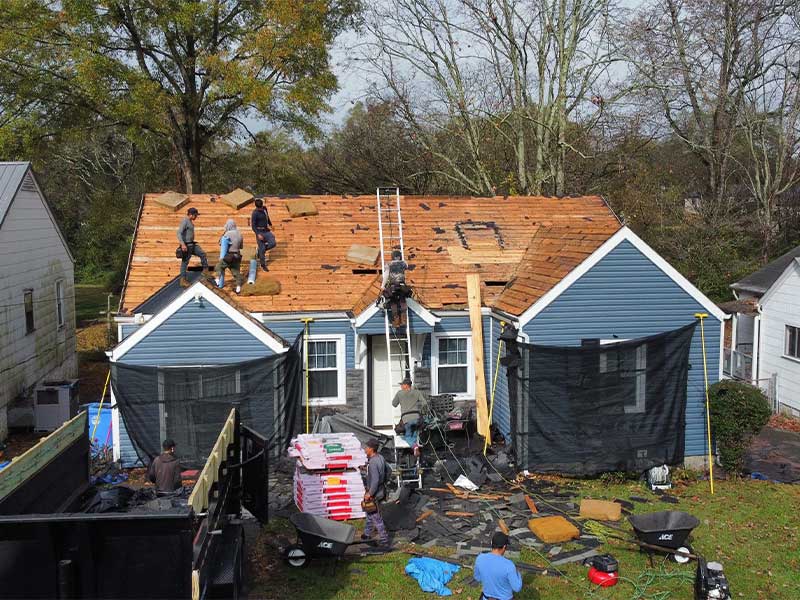
Commercial Roofing
- Energy efficiency – Metal roofs reflect the sun’s rays, keeping your property cooler and reducing your energy bills. They are also a good choice for properties that are frequently exposed to the sun, such as those in warm climates.
- Versatility – Metal roofs come in a variety of styles and colors, allowing you to customize the look of your property. They can be designed to mimic the appearance of other roofing materials such as tile, slate, or wood, while still providing the durability and longevity of metal.
- Easy maintenance – Metal roofs require minimal maintenance, as they do not absorb water and are resistant to mold, mildew, and insect damage. This ease of maintenance translates to lower long-term costs for property owners.
Overall, metal roofing is an excellent choice for commercial and residential properties.
The Durability and Appeal of Metal Roofs: A Guide to the Most Popular Types
Metal roofs have skyrocketed in popularity among homeowners and commercial building owners alike. And it’s no wonder why – these roofs offer unbeatable durability, energy efficiency, and versatility. In this article, we’ll delve into the most common types of metal roofs and their impressive durability.
- Steel Roofing: The Top Choice: Steel roofing takes the top spot as the most popular and widely-used metal roofing material. Why? Because it’s strong, affordable, and can withstand fire, snow, hail, and other challenging weather conditions. There are two main types of steel roofing: galvanized steel, coated with zinc to prevent rust, and Galvalume steel, coated with a combination of aluminum and zinc. No matter which type you choose, steel roofing boasts exceptional durability and can last an impressive 50 years or more.
- Aluminum Roofing: Lightweight and Corrosion-Resistant: Looking for something lightweight and low-maintenance? Aluminum roofing is your answer. Not only does it resist corrosion, but it’s also eco-friendly and can be recycled after use. With proper maintenance, aluminum roofing can easily last between 30 and 50 years.
- Copper Roofing: Durability Meets Beauty: For those seeking a roof that’s as aesthetically pleasing as it is durable, look no further than copper roofing. Copper not only withstands the test of time, but it also develops a natural patina that adds to its charm while protecting it from corrosion. With regular maintenance, copper roofing can last an impressive 100 years or more.
- Zinc Roofing: The Rising Star: If you want a roof that’s as attractive as it is durable and weather-resistant, consider zinc roofing. It’s gaining popularity for a reason – it’s corrosion-resistant, eco-friendly, and can be easily recycled. With routine maintenance, zinc roofing can provide protection for up to 80 to 100 years.
Tips for Choosing the Perfect Metal Roof
If you’re considering a metal roof for your home or building, there are a few crucial factors to keep in mind. Metal roofs offer a wide range of benefits, including durability, longevity, and energy efficiency. However, not all metal roofing materials are the same, so it’s essential to choose the right type for your specific needs to ensure optimal performance and satisfaction.
Here are some tips to help you make an informed decision on the best metal roof for your property:
- Consider the climate: The climate in your area plays a vital role in selecting a metal roof. Different materials have varying resistance to extreme weather conditions like high winds, heavy rainfall, and hail. Depending on where you live, you might need a metal roof that can withstand these elements or one that provides excellent insulation and energy efficiency.
- Think about style and design: Metal roofs come in several styles and designs, from standing seam to shingles. When choosing a material, consider the architectural style of your property and your aesthetic preferences. Find a metal roof that complements the overall look of your home or building.
- Consider the long-term cost: While metal roofs may have a higher upfront cost, they offer significant long-term benefits and savings. These roofs can last up to 50 years or more, reducing the need for frequent replacements. Additionally, they provide better energy efficiency, resulting in lower utility bills over time.
- Look for quality and reliability: Choose a reputable manufacturer that offers high-quality metal roofing materials. Steel, aluminum, copper, and zinc are some of the top choices with unique benefits and advantages.

Commercial Roofing
5 Essential Tips to Extend the Lifespan of Your Metal Roof
Investing in a metal roof for your home or business? Smart choice! Metal roofs offer durability, energy efficiency, and a sleek modern look. But to make the most of this investment, regular maintenance is key.
Follow these maintenance tips to ensure your metal roof lasts longer:
- Stay Ahead with Inspections: Keep an eye on your metal roof to catch any damage caused by weather or debris early on. This allows for timely repairs and prevents small issues from becoming big headaches.
- Cleanliness is Key: Regularly clean your metal roof to prevent corrosion and maintain its protective coating. A simple cleaning twice a year does the trick.
- Don’t Forget the Gutters: If your metal roof has gutters, keep them clear of debris. Clogged gutters can cause water to pool and lead to serious water damage.
- Fix it ASAP: When you spot any damage during inspections, don’t procrastinate! Promptly address and repair issues to prevent them from escalating into bigger, costlier problems.
- Call in the Experts: For a comprehensive assessment, opt for a professional roofing contractor to inspect your metal roof every few years. They can detect hidden issues and advise on preventive measures.
By following these maintenance tips, you can ensure the longevity and performance of your metal roof for years to come.
The amazing versatility and dependability of metal roofing, making it the perfect choice for any residential or commercial project. With a wide range of colors and designs to choose from, and proper maintenance, your metal roof can last impressively long. Before you commit to any materials, make sure to explore the different types of metal and consult with a trusted professional. Don’t wait! Invest in a durable and well-maintained metal roof now for long-lasting protection and peace of mind. Educate yourself on the available options and enjoy the advantages of metal roofs today!
Chattanooga Roofing Company
https://www.google.com/maps?cid=3134983317498625437
https://www.google.com/maps?cid=3134983317498625437
(423) 443-4174
- By: chattroof
- best commercial roofing services, best commercial roofing nearby, best commercial roofing in my area, local commercial roofing, professional commercial roofing, commercial roofing, hire commercial roofing service, commercial roofing company, hiring commercial roofing services, best commercial roofing company, rates of commercial roofing, best commercial roofing, cost of commercial roofing, commercial roofing services, prices of commercial roofing, commercial roofing near me, commercial roofing rates, commercial roofing nearby, commercial roofing cost, best commercial roofing near me, commercial roofing prices, commercial roofing in my area, benefits of commercial roofing, commercial roofing service, best commercial roofing service
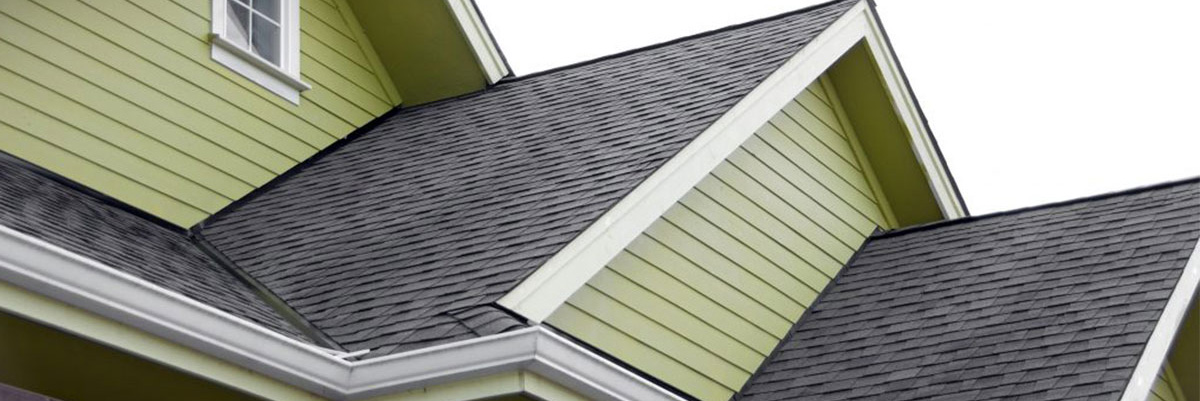
10 Oct. 2023
Roofing
All You Need to Know About Roofing and How to Choose the Best Contractor
When it comes to making sure your roof is in tip-top shape, there’s more to consider than just the cost of materials. Poor workmanship can result in costly damage and repairs down the line. To ensure you get reliable service that meets all of your needs, it’s important to select the right roofing contractor for the job. But before you hire someone, there are a few crucial things you should understand about roofing so you make an informed decision for your home or office. In this blog post, we’ll walk through what you need to know about how roofs function and why quality materials and labor matter—plus provide useful tips on finding a reputable company with competitive rates.
What is roofing and why is it important for your home
Roofing is an essential part of any home construction project, as it serves as the first line of defense against external elements. A well-built roof not only offers protection from natural disasters such as rain and snow but also enhances the aesthetic appeal of your property. The importance of roofing cannot be understated, as faulty installation or repair can lead to significant water damage, electrical problems, and even health hazards due to mold growth. Regular maintenance and inspection of your roofing system is necessary to ensure the safety of your home and the people residing in it. Therefore, investing in high-quality roofing materials and professional services is crucial to safeguarding your home in the long term.
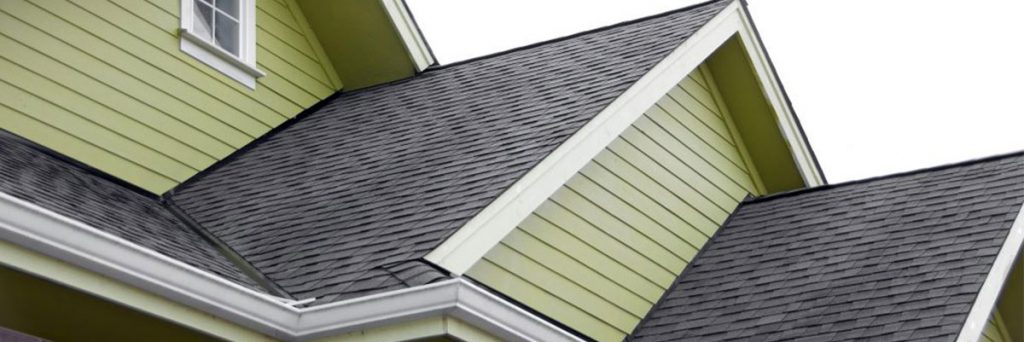
Roofing Services
Different types of roofing materials and which one is best for your home
Choosing the right roofing material for your home is a crucial decision, as it not only protects your home from the elements but also adds to its overall aesthetic appeal. With so many different types of roofing materials available in the market, each with its own set of advantages and disadvantages, it can be overwhelming to decide which one is best suited for your home. From traditional asphalt shingles to eco-friendly options such as metal and clay tiles, each roofing material has its own unique characteristics and benefits. Consulting with a professional roofing contractor can help you identify the best roofing material for your home based on factors such as your climate, budget, and personal preferences. Ultimately, choosing the right roofing material can help ensure that your home remains durable and beautiful for years to come.
Things to consider when choosing the right contractor to install your roof
Installing a roof is a major investment and an essential part of any home or building. When choosing a contractor for this crucial project, there are several things to consider to ensure that you receive quality workmanship and the best value for your money. Firstly, do your research and check the contractor’s credentials, such as licenses, certifications, and insurance. You should also ask for references and reviews from previous clients to gauge their level of expertise and reliability. Price should not be the sole determinant; instead, ensure that the contractor provides a detailed and transparent estimate that covers all the necessary tasks and materials. Additionally, consider the warranty offered and the contractor’s after-sales services. Choosing the right contractor may take time, but it is a crucial step in achieving a sturdy and long-lasting roof for your home or building.
How to prepare for a successful roof installation
Installing a roof is a major undertaking that should not be taken lightly. It’s important to prepare properly to ensure a successful outcome. Start by making sure you understand the scope of the project, including the type of roof you need, the materials required, and the timeframe for completion. Thoroughly research roofing contractors to find one that is licensed, insured, and has a good reputation. Ask for references and check online reviews to make sure they have experience and expertise in your specific type of roofing. Before the installation, clear the area around your home to ensure there is enough space for the contractor’s equipment and workers. Finally, make sure you have a plan in place for protecting your home during the installation process, such as covering windows and landscaping. By taking these steps, you can prepare thoroughly and enjoy a successful roofing installation.
Common mistakes people make when installing a new roof
Installing a new roof is a significant undertaking that requires careful consideration. Unfortunately, many people make common mistakes during the process, leading to costly repairs in the future. One of these mistakes involves underestimating the importance of proper ventilation. Inadequate ventilation can result in moisture buildup, which, in turn, can lead to the growth of mold. Another mistake is using improper flashing techniques, which can allow water to seep into the home and cause structural damage. Additionally, selecting the wrong materials for the specific climate is a common error that can lead to premature wear and tear. To avoid these pitfalls, it is crucial to work with experienced professionals who not only understand these potential issues but also know how to navigate them effectively. By doing so, you can ensure that your new roof performs well and remains in good condition for years to come.
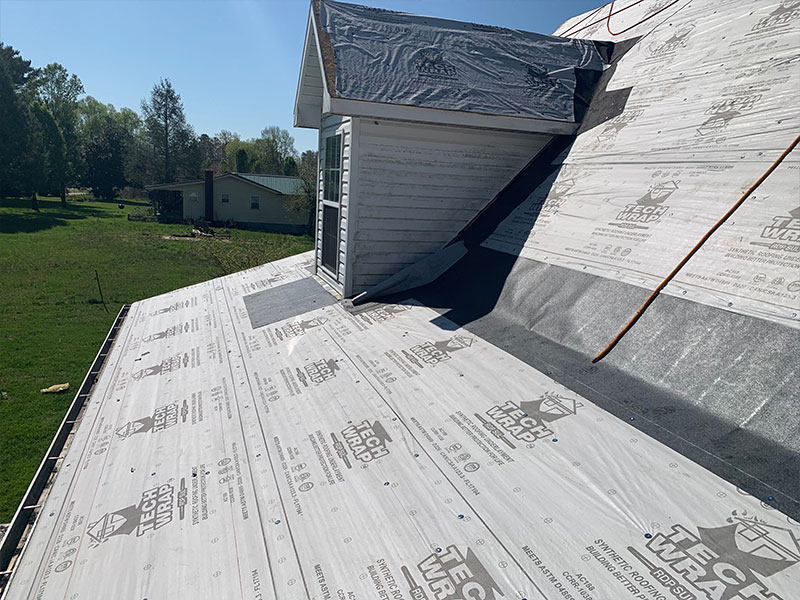
Residential Roofing Services
Tips to maintain your new roof and get the most out of its lifespan
Your new roof is a significant investment in your home, and it can last for decades if you take proper care of it. To ensure that your investment lasts as long as possible, there are several tips that you should follow when it comes to maintaining your new roof. First, make sure to schedule regular inspections with a professional roofing contractor. This will help identify and address any issues before they become costly repairs. Additionally, make sure to keep your roof clean and clear of debris, as this can cause damage over time. Finally, be cautious when it comes to heavy storms or wind, as they can cause significant damage to your roof. By following these tips, you can get the most out of your new roof and help it last for many years to come.
Overall, investing in a quality roof is an important undertaking. Taking the time to familiarize yourself with your options can help you make the best choice when it comes to selecting the right materials and contractors. It’s also important to keep in mind that proper preparation and maintenance are key for getting the most out of your new roof and making sure it will last a long time. Choosing the right materials, and contractor, being prepared for the installation project, and following some basic maintenance tips can all play a part in ensuring a successful installation. With these factors taken into account, you can rest assured that your new roof will provide protection from harsh weather elements for many years to come. If you’re considering installing a new roof or just want to know more about this important home upgrade, don’t hesitate to get in touch with a professional contractor today – they are always available to answer any of your questions and help guide you through this process!
Chattanooga Roofing Company
https://www.google.com/maps?cid=3134983317498625437
https://www.google.com/maps?cid=3134983317498625437
(423) 308-7663
- By: chattroof
- roofing services near me, best roofing services, best roofing services near me, professional roofing sevices, professional roofing near me, residential roofing, commercial roofing, local roofing companies, industrial roofing near me, roofing, roofing company, roofing company near me, roofing services
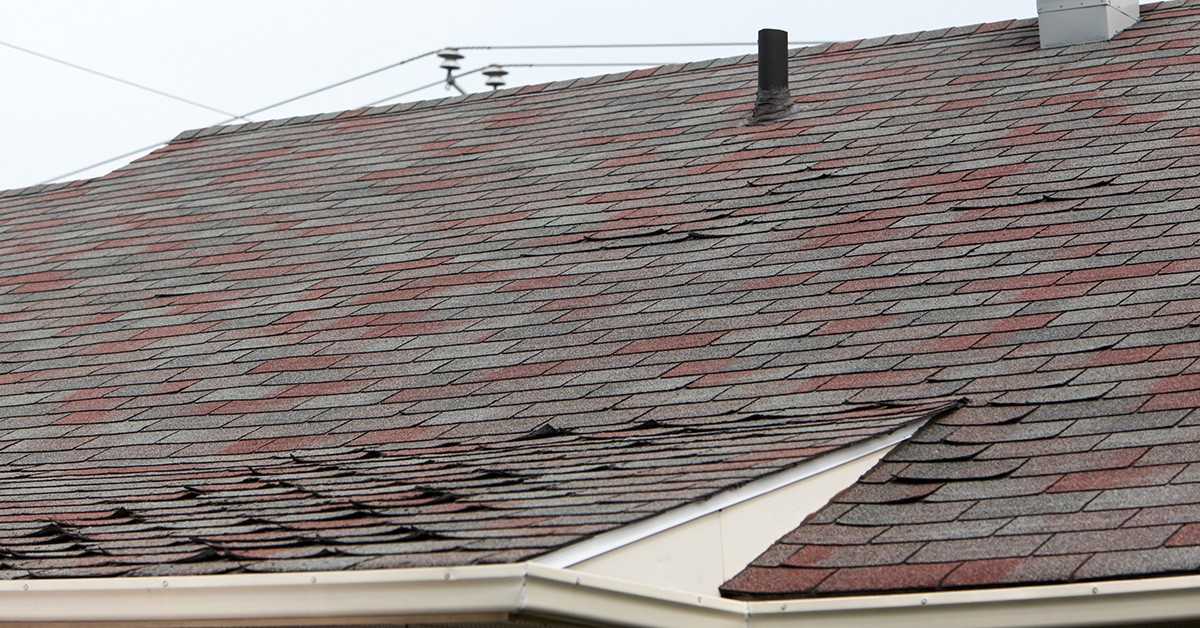
31 Aug. 2023
Why Hail Damage Poses a Serious Threat to Your Commercial Roof’s Health
Why Hail Damage Poses a Serious Threat to Your Commercial Roof’s Health
Hail damage can pose a serious threat to your commercial roof’s health. It can cause significant damage to your roof and lead to costly repairs. Hailstones can range in size from small pebbles to baseball-sized or even larger, and can cause dents, cracks, and punctures in your roof.
Also, this type of damage can lead to leaks and other structural problems that can compromise the integrity of your building. If left unaddressed, hail damage can lead to more severe problems. These can include mold growth and water damage. So, it’s vital to address hail damage as quickly as possible to avoid further damage and ensure your commercial roof’s longevity.
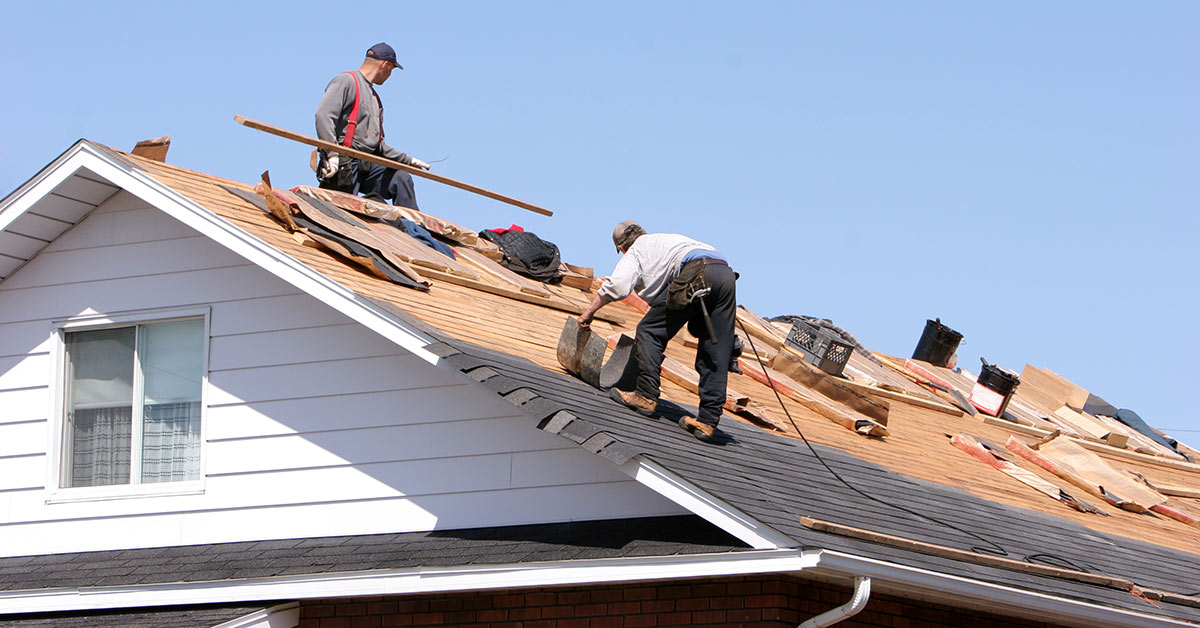
Commercial Roof
Hail Damage and Commercial Roofs
Understanding Hail Damage
Hail forms when thunderstorm updrafts carry raindrops into freezing areas of the atmosphere. This turns the raindrops into small pea-sized pellets or larger pieces the size of golf balls. These icy missiles can do a lot of damage to your roof.
The Impact on Commercial Roofs
Weakening of Roofing Materials
Hail can crack and break roofing materials. This makes them more susceptible to water infiltration and other environmental factors.
Compromised Roofing Structure
The force of impact from hailstones can compromise the integrity of the lower layers of your roof. As a result, sagging, leaks, and even collapses can occur if left unaddressed.
Impaired Waterproofing
Hail damage can create openings that allow water to seep beneath the roofing layers. This can lead to gradual deterioration and mold growth.
Protecting Your Commercial Roof
Regular Inspections
Schedule regular roof inspections to catch hail damage early and address any issues promptly.
Quality Roofing Materials
Investing in high-quality, impact-resistant roofing materials can significantly minimize the impact of hail damage.

Commercial Roof
Timely Repairs
Timely attention to even minor damage can prevent future costly and extensive problems from developing. Thus, keeping up with maintenance and repairs is a vital step.
Conclusion
Your commercial roof is more than just a covering. It’s a critical asset to your business. Hail damage can compromise its integrity, leading to expensive repairs and business disruption. However, by understanding the risks, investing in prevention, and addressing issues promptly, you can protect your roofing investment for years to come.
For professional roof inspections, repairs, and guidance on fortifying your commercial roof against hail damage, contact Chattanooga Roofing Co. Our experienced team is dedicated to ensuring the durability and resilience of your business’s first line of defense.
Chattanooga Roofing Company
https://www.google.com/maps?cid=3134983317498625437
https://www.google.com/maps?cid=3134983317498625437
(423) 443-4174
- By: chattroof
- best commercial roofing, commercial roof repair service, local commercial roof, rates of commercial roof, cost of commercial roof, prices of commercial roof, commercial roof rates, commercial roof cost, commercial roof prices, commercial roofs, commercial roof near me, commercial roofing near me, commercial roof nearby, commercial roof, commercial roofing nearby, commercial roof repair, best commercial roofs, commercial roofing, best commercial roofing near me, best commercial roof, professional commercial roof

24 Jul. 2023
How to Maintain a Commercial Roof Properly
How to Maintain a Commercial Roof Properly
Keeping your commercial roof in pristine condition is essential for the longevity and success of your business. A well-maintained roof not only safeguards your investment but also ensures the safety and comfort of everyone inside. But where do you begin when it comes to the question of “how to maintain a commercial roof properly?”
Understanding the fundamentals of proper roof maintenance is the first step toward avoiding costly repairs and potential disruptions. From regular inspections to simple yet effective cleaning techniques, we’ll walk you through the essential practices that keep your roof in perfect shape. So, whether you’re a business owner, property manager, or simply someone interested in caring for commercial buildings, our experts can help you achieve a well-maintained and worry-free roof.

Commercial Roof
How to Maintain a Commercial Roof Properly
Regular roof inspections are the foundation of effective roof maintenance. Conducting inspections at least twice a year, during spring and fall, allows you to identify and address potential issues before they escalate. So, this section will explain the most important parts of a full roof inspection and give tips on what to look for.
Cleaning and Debris Removal
1. Clear Gutters & Downspouts
If your gutters and downspouts are clogged, water may not drain as it should, causing water to pool and possibly leak. Make sure to keep gutters and downspouts clear and look for resources on how to accomplish this task efficiently.
2. Remove Leaves & Debris
Leaves, twigs, and other trash can pile up on a roof, causing damage and making it hard for water to drain. Ensure that you can safely removing debris from your roof, avoiding potential problems.
3. Pressure Wash
Over time, dirt, moss, and algae can grow on the roof, making it look bad and weakening its structure. The benefits of pressure washing are many, including the fact that it’s quick, relatively inexpensive, and does wonders for a roof’s health.
Address Roofing Repairs Promptly
Understanding the signs of common roofing problems, such as leaks, damaged shingles, and sagging, is crucial to addressing them promptly. You’ll need to recognize these issues and take appropriate action.
Hire a Professional Roofing Contractor
While minor repairs can be handled in-house, major repairs should be entrusted to professional roofing contractors. Be sure to select a reputable contractor – the commercial roofing experts at Chattanooga Roofing Company.
Ensure Proper Drainage
1. Inspect & Maintain Drains & Scuppers
Drains and scuppers are very important for a roof to drain well. Don’t underestimate the importance of checking and keeping these parts in good condition so that water doesn’t build up and cause damage.
2. Solve Slope & Ponding Issues
When the slope isn’t right and water pools, it can damage the roof and cause leaks. But fear not! We can deal with slope and ponding problems to keep a drainage system working well.

Commercial Roof
Conclusion
Maintaining a commercial roof properly is essential to protect your investment, ensure safety, and avoid costly repairs. By conducting regular inspections, addressing repairs promptly, protecting against leaks, and ensuring proper drainage, you can extend the lifespan of your roof and preserve its integrity.
So, if you require expert assistance or have any questions, contact Chattanooga Roofing Company. Also, we take the necessary steps to maintain your commercial roof today and secure a solid foundation for your business.
Chattanooga Roofing Company
https://www.google.com/maps?cid=3134983317498625437
https://www.google.com/maps?cid=3134983317498625437
(423) 443-4174
- By: chattroof
- best commercial roofing company, commercial roof prices, best commercial roof, best commercial roofing, best commercial roof repair, commercial roof repairing, commercial roof repairing service, benefits of commercial roof, maintaining commercial roof, commercial roofing services, local commercial roof, professional commercial roof repair, rates of commercial roof, commercial roof, cost of commercial roof, commercial roof repair, prices of commercial roof, commercial roofing, commercial roof rates, commercial roofing company, commercial roof cost
visit Us: 529 S. Germantown Rd. Chattanooga, TN 37411
email us: ted@chattanoogaroofingco.com
24/7 Emergency call (423) 308-ROOF
